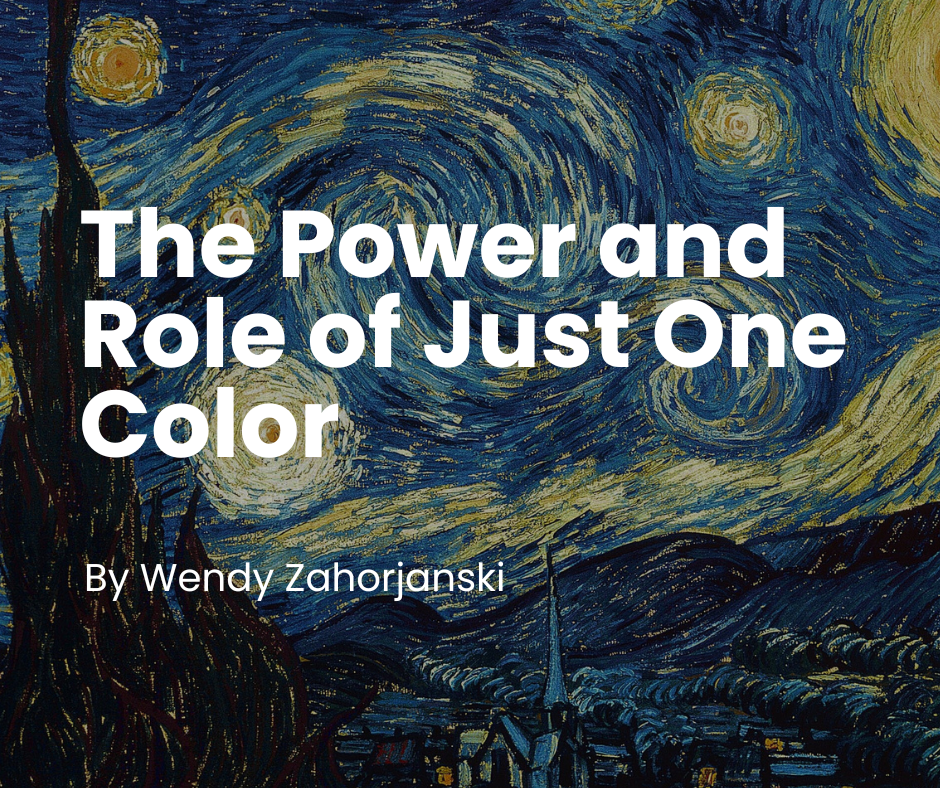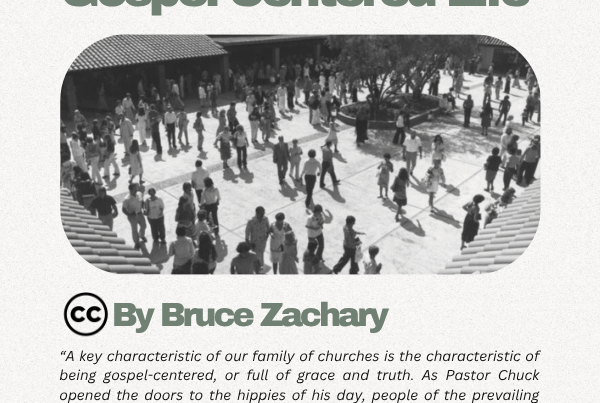
Walking through the front door didn’t change my mood or affect my spiritual sensibilities. The mother was lying on the couch, sick. Three of her four kids were sitting on the couch next to her. I greeted each of them and sat in the chair on the other side of the room before noticing that my three-year-old still stood in the doorway staring at me. I studied him with slightly furrowed brows. It was true that he was in a new place, but unfamiliar surroundings had yet to stop him from bounding into a room chattering away to whoever would listen—friends or strangers. I invited him to come in and sit next to me, to which he responded, “Mama, let’s go home.”
That’s weird, I thought. He’s never done that before. “We just got here,” I responded. “Come sit with me.” He did obey but walked over to me very slowly, his eyes scanning the room before landing on me. Once he reached my chair, he sat with me the entire visit. For my turbo-powered boy, this was unusual. I hadn’t planned to stay long anyway, just to check in on the mom who’d been really ill, but cut my visit even shorter because of my son. For some reason, he didn’t want to be there. At all.
I tried to explain away his odd behavior. Maybe it’s the dim lighting, I thought. Or maybe seeing a sick person in bed makes him feel uncomfortable. Maybe he’s having an off day. Even though I’d come to that house a couple of times before, maybe he was just hesitant because it was his first time. But that didn’t really fit with his personality, and for the rest of that day, the image of him standing in the doorway staring at me was in the forefront of my mind.
He wasn’t just asking to go home. His eyes were saying, “We need to go right now.” He was trying to tell me that something was wrong. But nothing was, and though the house was new to him, the people inside it weren’t. He’d seen them more than once at church. He’s only three, but what if he was feeling the way he was for a reason? I remember thinking.
The Mystery Solved
I was thinking about it so much that I finally decided to talk to one of my friends about it. I knew that she’d visited that same house a few days after me, and I also knew that she had the gift of discerning the spirits. (To learn more about this spiritual gift and others, see I Corinthians 12:4-11.) “This is a weird question,” I said, as we sat sipping on cups of coffee, “but did you feel any demonic activity in ___’s house when you were there a couple of days ago?”
She straightened in her seat and looked straight into my eyes, “Why do you ask?”
I told her about my visit and my son’s strange behavior there. “I don’t know if he was sensing something or if he was just nervous about being in a new place.”
“He wasn’t just nervous,” she said. “There’s definitely a demonic presence in that house. He might’ve been sensing something and trying to tell you.”
“Wow,” I said. “I felt nothing. No demonic presence and no discomfort. Hmmm.”
“He could be more sensitive to those things than you are. He’s young, but it’s good to be aware of. He might be able to feel the spiritual realm more than you. Some people can do so more than others.”
With that, the mystery was solved, and the conversation flowed on to other topics. I laid the incident to rest because I trusted this friend and knew that if she said something was going on in that house, then there was something going on in that house. Not being able to sense it, though, made me feel lame. My three-year-old was picking up on demonic activity more than I was, and the temptation was to beat myself up about it.
But I chose not to. I believe that walking into a room and being able to discern spiritual activity is a gift that some are given, and some aren’t. It doesn’t mean that those who have this gift are closer to the Lord or more spiritual. It just means that they’ve been given that particular gift. While I should always be growing in discernment and wisdom, I might not ever be able to walk into a room and instantly feel the presence or absence of demonic activity. The Spirit, in His perfect will, has chosen to give me other gifts. No gift is more or less important than another, and no one has them all. This is one reason that we need each other (1 Peter 4:10-11).
My friend’s gifting helped me make sense of my experience. She was able to speak truth and guidance into my situation because of her gift, and it’s happened more than once. I’ve learned to rely on her and other people in my church who have this gift. There’ve been other times that my son has sensed something, or that even I have sensed that something, is “off” or that others have shared with me about their encounters with demonic forces.
And in each of these cases, I needed the help of my brothers and sisters who have different giftings than I do. I need their gifts to come in and fill the void in mine. When this happens, we share deep fellowship as the Spirit in them flows out and meets my questions and searching. Their strength in this area makes up for my weakness.
No Need to Be a Maverick, Just a Color Painted In
I don’t see a call in Scripture to possess every spiritual gift, and that’s a relief. Think of the pressure!
Instead, an exhortation is repeated to build each other up with the unique gifts that each has been given. Not having all gifts is not a limitation but an opportunity to cultivate relationships and dependence. The D-word makes me uncomfortable, if I’m honest. In my pride, I’d rather be able to do everything on my own and leave the interdependence for the weak. But God, in His grace, is correcting my perspective. He’s showing me what a blessing it is to be interdependent. I exhaust myself trying to be all and do all—something I was never created to be and do.
I was created to be an integral part of a living organism. One part. A member of a body of distinct and unique people with Spirit-infused gifts that together, as a unit, breathe out life and truth, transforming the world around it. I was created to bring a vital set of gifts to that body, not to bring them all (Romans 12:3-8).
In other words, I’m one color, not the whole painting.
Close your eyes and picture a painting that is only one color. Not light blue and navy blue and turquoise, but one blue because even shades of the same color are created by combining different colors. One color means just one shade of blue. It might be possible to paint something like this, but it wouldn’t be multi-dimensional, and it’d be boring. Without different colors, there’d be no way to create interest with depth because, for that, you need contrast. All the colors working together is what dazzles the eye and pulls it in. One color all by itself is pretty, but it isn’t a work of art.
The opposite is also true. Removing one color from a painting would ruin it. “The Starry Night” by Vincent van Gogh, with all blue removed, wouldn’t only lose its beauty, it’d also fail to accurately represent what the artist had set out to paint. An artist skillfully chooses colors, mixes them with care, and places them on a specific area of the canvas. In the same way, we were skillfully chosen, mixed together with other believers, and placed in a local church: a body of Christ (I Corinthians 12:12-25).
In the following series of articles, I want to explore what being one color mixed and painted into a myriad of others looks like practically. How can our local churches reflect the reality that each person’s spiritual gifting is meant to build up those of others? How can we, as one color, fit ourselves into the bigger picture, adding beauty and life, drawing in those looking from afar? How does doing this turn our attention to the Creator of the picture as a whole and away from each individual color?
Questions We’ll Explore in the Upcoming Series
These are some of the questions we will explore together as we dive deeper into the following concepts:
How can we become adept at recognizing our own gifts as well as those of local brothers and sisters?
How can we, as a church, facilitate opportunities for gifts to develop?
How can we use our gifts to work together, strengthening and encouraging, instead of being threatened by or competing with each other?










